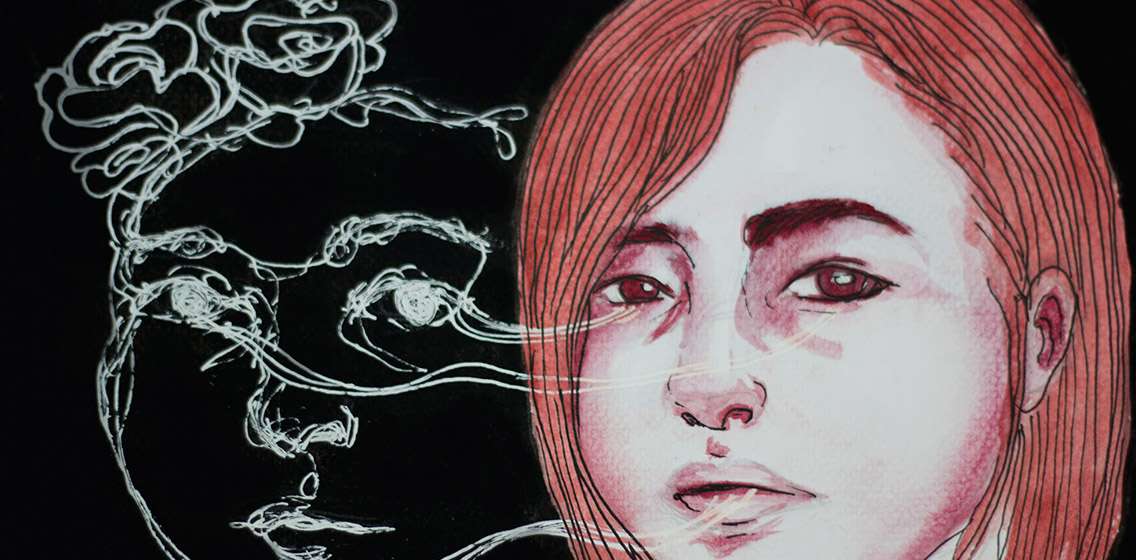Superficial sagacity
When meeting new people, we can’t help but judge their identity based on what we see on the surface. It seems like a switch in our mind automatically turns on every time we meet new people that we judge them with only their appearance as our reference. Since being judgmental appears to be a habit for most of us, perhaps we should contemplate on its repercussions.
Twisted discernment
It’s hard to resist a quick head-to-toe inspection when you come across strangers. Somehow, it feels like a natural habit for some to have these snap judgments—an impulsive assumption of a person’s personality based on physical appearance. Malcolm Gladwell described snap judgments in his book Blink as merely instinctive and immediate. He furthered that our quick assessments are more efficient for decision making compared to when we think about a situation deliberately.
With only the little information about a person we got from our snap judgments, most of us still trust our guts in making first impressions. After looking at a person’s face for just a tenth of a second, we already have an opinion about their attractiveness, likeability, and trustworthiness, according to Princeton University researchers Janine Willis and Alexander Todorov. They stated that our judgments do not change even when we are given more time to look at the person’s face. Instead, we convince ourselves that our judgment is definite, as our brain has processed the memory of our first impressions into whole images, which will be deep-rooted in our memory.
Even if we cannot thoroughly explain our assumptions, studies have proven that our first impressions can be relatively accurate. This is known as “thin-slicing”—our brain’s capability to break images off a person’s expression into fragments, as explained by psychologist Nalini Ambady. Surprisingly, thin-sliced observations are often accurate because our judgment is solely based on gut instinct where our mind is more attentive and intuitive. According to her study Thin Slices of Expressive Behavior as Predictors of Interpersonal Consequences, people tend to presume—and conclude—one’s personality in just 15 seconds of meeting.
It can make us conscious about our appearance knowing that there is no second chance on making first impressions. Definitely most of us want to be remembered positively, but we cannot decide for others’ impression of us.
Refined deception
Most of us remember a person’s face better than their names, especially when they have remarkable features. Considering that we live in a world where surface image seem to matter most, many people devote their lives just to fit in with the ever-changing beauty standards. From clothes, accessories, beauty products and even cosmetic surgery, people put excessive effort into buying these luxuries to revamp their physical appearance.
Fortunately, the beauty conscious’ efforts would not go to waste as, society favors charming faces and ravishing physique. This idea was concluded by sociologist Dr. Gordon Patzer with his three decades of research about physical attractiveness. According to Patzer, beautiful and handsome people are generally considered to be more talented, intelligent, and affectionate compare to mediocre-looking people. Another research by psychology professor Comila Shahani-Denning confirmed that attractive individuals are perceived as more outgoing, sociable, and successful.
In the industry, your physical appearance can benefit or hinder your career. A study made by economist Daniel Hamermesh from Yale University finds that attractive employees earn roughly five percent more than the average wage compared to their ordinary-looking workers. Another study by Timothy Judge at the University of Florida also observed that taller workers could expect to earn an extra $789 every year, compared to those who are below six feet tall, as height is perceived to correlate with intelligence and power. Unfair as it may sound, some people had already given the top spot for those sophisticated-looking people, while the mediocre-looking strive to be noticed.
Good-looking people don’t only get positive recognition, but they also receive more empathy and help. A social experiment done by Youtuber NorniTube observed how passers-by reacted when he collapsed in the middle of the street first dressed as shabby homeless man and then dressed in stunning black suit. No one approached him while he was dressed as a poor man, not even when he was desperately calling for help. But the reactions were completely different when he was dressed in refined suit. People gathered and assisted him immediately. This experiment proved that when put to the test, most people choose whom to help according to their physical appearance, without even considering the situation. Without knowing it, our shallow judgment overlooks reality.
Calloused perception
Many people adore Angelina Jolie’s luscious lips and Emma Stone’s prominent bone structure—but not all are crazy about them. We might not admit it, but we usually judge people’s appearance based on our standards. As William Paterson University philosophy Professor Pete Mandik stated, judgments of style preference are subjective—like when your friend prefers those with bright, big eyes, but for you, it looks grotesque. Neither of you can be right or wrong because your judgment depends according to your preference.
There are different factors influencing our preferences that may lead to having subjective judgment. As stated by Emily Pronin in her research Perception and Misperception of Bias in Human Judgment, our beliefs, expectations, and motives compromise our perception; and affect our conviction and decisions. Pronin also explains that we have the tendency to make judgments according to our self-interest, favoring the people who can help us with what we need.
Even if we refuse to be labeled as biased, our judgment depends on what we believe in and commonly disregards the evidence of the truth. While we might try hard not to be subjective, our own preference still prevails when deriving speculation about people’s identity.
***
We are born with eyes to see and a brain to interpret what we have seen. When we judge people, our subconscious mind may overtake our reasoning and cloud our thought based on what our eyes perceive. So before jumping to conclusions about a person’s inner nature, try to look beyond the image in order to discover their type of amazing concealed beneath the skin.






